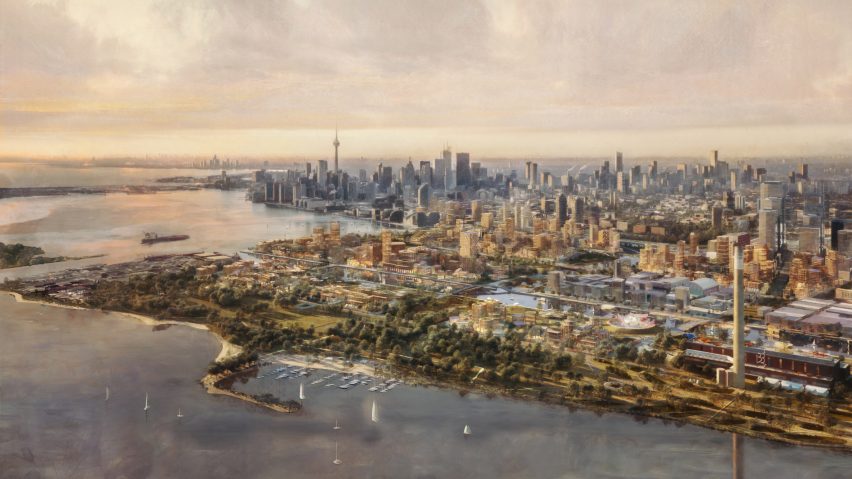
Sidewalk Labs abandons Toronto smart city during pandemic
Alphabet subsidiary Sidewalk Labs has abandoned its ambition to create a smart neighbourhood in Toronto amid "unprecedented economic uncertainty" caused by the coronavirus pandemic.
Sidewalk Labs CEO Daniel L Doctoroff announced in an article posted to Medium today that the current economic climate meant the company was unable to move forward with developing the neighbourhood for its partner Waterfront Toronto.
"It has become too difficult"
"For the last two-and-a-half years, we have been passionate about making Quayside happen – indeed, we have invested time, people, and resources in Toronto, including opening a 30-person office on the waterfront," he explained.
"But as unprecedented economic uncertainty has set in around the world and in the Toronto real estate market, it has become too difficult to make the 12-acre (4.8-hectare) project financially viable without sacrificing core parts of the plan we had developed together with Waterfront Toronto to build a truly inclusive, sustainable community," he continued.
"And so, after a great deal of deliberation, we concluded that it no longer made sense to proceed with the Quayside project, and let Waterfront Toronto know yesterday."
Sidewalk Toronto billed as "future city"
Sidewalk Labs won a bid to overall a parcel on Toronto's waterfront in October 2017, with a proposal that aimed to redevelop an 800-acre (324-hectare) site on the edge of Lake Ontario into a high-tech "future city" using cutting-edge technology to pioneer.
Doctoroff told Dezeen in an interview shortly after winning the project how the company aimed to produce a fast model for future urban developments."It takes 40 or 50 years to update an industrial landscape," he said. "We want to speed that up."
Sidewalk Labs rolled out a host of design proposals for the scheme, including reconfigurable modular paving with Carlo Ratti, mass-timber neighbourhoods designed by Thomas Heatherwick and Snøhetta and raincoats for buildings.
Doctoroff said that although the Toronto project is now scrapped, the progress made by the team will be useful for future developments, particularly in light of the coronavirus crisis.
Ideas can be used for "tackling big urban problems"
"While we won't be pursuing this particular project, the current health emergency makes us feel even more strongly about the importance of reimagining cities for the future," Doctoroff added.
"I believe that the ideas we have developed over the last two-and-a-half years will represent a meaningful contribution to the work of tackling big urban problems, particularly in the areas of affordability and sustainability," he said.
"This is a vital societal endeavour, and Sidewalk Labs will continue our work to contribute to it."
Abandonment follows setbacks
The abandonment of Sidewalk Toronto follows a series of setbacks the company has faced.
In particular, it was tasked to refine its controversial proposal to collect data from residents. In response, it said it would develop "the strongest governance regime for urban data anywhere in the world". These amends formed part of a new Master Innovation and Development Plan released in 2019.
The revised scheme also stripped back its initial ambition to focus on creating two neighbourhoods in Toronto – Quayside and the western part of Villiers Island, which make up just seven per cent of the larger lakeside site for Sidewalk Toronto.
Shortly after releasing the Master Innovation and Development Plan, Sidewalk Labs was mandated to make more amends to "critical issues" highlighted by concerns that the public and stakeholders. This included that the team follow existing and future privacy legislation, regulations and policy frameworks in Canada for data collection.
Coronavirus causes economic downturn
The Waterfront Toronto board was expected to make a final decision on 31 March 2020 before the pandemic struck.
The coronavirus crisis has caused lockdown restrictions in countries across the globe and an economic downturn that has been likened to the 2008 financial crash.
Across the world, museums have been shut and events and shows have either been cancelled or postponed due to the crisis further stifling activity. These include Salone del Mobile and the Venice Architecture Biennale, which are considered the design and architecture industry's biggest events.
Renderings by Picture Plane.